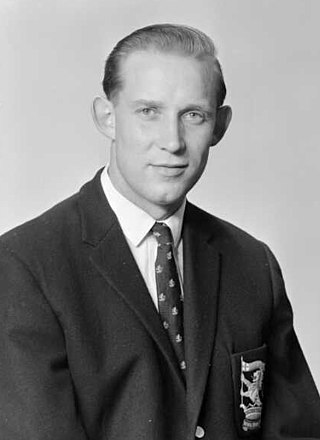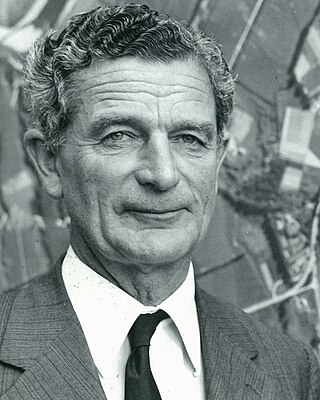Related Research Articles

Sir John Antony Hood is a New Zealand businessman and administrator. He was Vice-Chancellor of the University of Oxford from 5 October 2004 until 30 September 2009. He was the first Vice-Chancellor to be elected from outside Oxford's academic body in 900 years, and the first to have addressed the scholars' congregation via a webcast. In March 2007 New Zealand Prime Minister Helen Clark awarded him the World Class New Zealand supreme award to honour his contribution to profiling New Zealand and New Zealanders internationally. On 15 November 2007 he announced that he would not seek an extension to his five-year term as Vice Chancellor, and that he would leave Oxford in September 2009.

James Christopher Belich is a New Zealand historian, known for his work on the New Zealand Wars and on New Zealand history more generally. One of his major works on the 19th-century clash between Māori and Pākehā, the revisionist study The New Zealand Wars (1986), was also published in an American edition and adapted into a television series and DVD.
Franklyn Albert Rose is a former West Indian cricketer. He is a right-handed batsman and a fast right-arm bowler who possesses a lot of power with his full-length outswing.
Colonel John Cabourn Hartley, known as Jock Hartley, was an English first-class cricketer and British Army officer.

Roger Charles Blunt was a cricketer who played nine Test matches for the New Zealand national cricket team.

Bruce Alexander Grenfell Murray was a Test cricketer for New Zealand who played 13 Tests as a right-handed opening batsman between 1968 and 1971. He was a school principal in the Wellington area from 1981 to 2002, and the author of several geography textbooks. After retiring from teaching, he was a cricket administrator in Wellington and a historian.

John Angus Dunning was a New Zealand cricketer who played in four Test matches between 1933 and 1937 and 60 first-class matches from the 1923–24 to 1937–38 seasons. He later became a headmaster in Australia.
Peter Neil Webb is a former New Zealand cricketer who played in 2 Tests and 5 ODIs from 1980 to 1984.
Thomas Umfrey Wells was a New Zealand-born first-class cricketer and educator who played first-class cricket in England in the early 1950s. All but one of his appearances were for Cambridge University, but he also played one match for Worcestershire in 1950.
Rex Clive Hooton is a former New Zealand cricketer who played first-class cricket for Auckland and Northern Districts. A right-hand bat and slow left-arm orthodox spin bowler, Hooton played 19 first-class matches from 1968 until 1980, and enjoyed some success with both the bat and occasionally with the ball. He scored three half-centuries during his career, as well as taking five wickets at a respectable 12.60.

David Charles Collins was a New Zealand cricketer. He played 53 first-class matches between 1905–06 and 1926–27, the bulk of these being for Wellington in New Zealand and Cambridge University in England; he won a blue for Cambridge and headed their batting averages in 1910.

Hector DonaldGillespie was a New Zealand cricketer who played first class cricket for Auckland and briefly for a pre-Test status New Zealand international side between 1920 and 1932 as a right-handed batsman.
Isaac Richards was an Anglican bishop in New Zealand from 1920 to 1934.

Sir Alan Stewart was a New Zealand educator and university administrator. He was principal of Massey Agricultural College from 1959 to 1963 and founding vice-chancellor of Massey University from 1964 to 1983, during which time he guided the institution's transition from agricultural college to full university. He is noted for building the university's internationally recognised agricultural programme, as well as for greatly expanding the university's extramural programme to make tertiary education available to rural New Zealanders. He was knighted in 1981 for services to education.
Lindsay Heathcote "Bob" Briggs was a New Zealand organic chemist.

Harold Butler Lusk was a New Zealand cricketer, golfer and schoolmaster. He played first-class cricket from 1899 to 1921, and was Headmaster of King's College, Auckland, in the 1940s.

Alan Wallace was a gifted New Zealand scholar and sportsman.

David Alexander Ashby was an English-born cricketer who played first-class cricket for Surrey in England in 1874, and Canterbury in New Zealand from 1876 to 1890.
Michael John Kilborn is an Australian former cricketer and a cardiologist and electrophysiologist at Royal Prince Alfred Hospital in Sydney.
David Mitchell was a New Zealand poet, teacher and cricketer. In the 1960s and 1970s he was a well-known performance poet in New Zealand, and in 1980 he founded the weekly event "Poetry Live" which continues to run in Auckland as of 2021. His iconic poetry collection Pipe Dreams in Ponsonby (1972) sold well and was a critical success, and his poems have been included in several New Zealand anthologies and journals. A collection of his poems titled Steal Away Boy: Selected Poems of David Mitchell was published in 2010, shortly before his death.
References
- ↑ "David Millener". ESPN Cricinfo. Retrieved 18 June 2016.
- ↑ "New Zealand Rhodes Scholars Since 1904" (PDF). Universities New Zealand.
- ↑ "Fisher Room: Thesis List". Department of Physics, University of Oxford. Archived from the original on 7 January 2018. Retrieved 10 June 2017.
- ↑ "A Job Well Done" (PDF). Brookhaven Bulletin. 23 September 1977. p. 3.